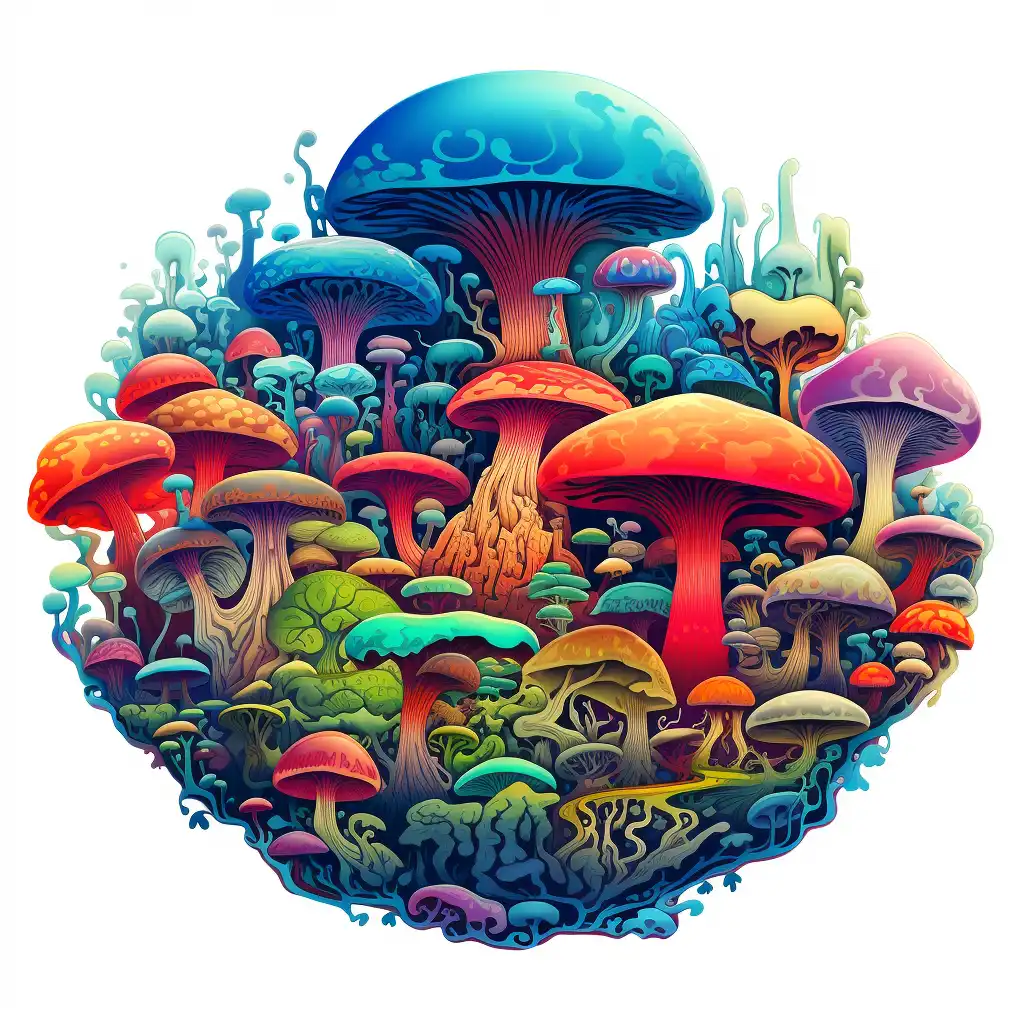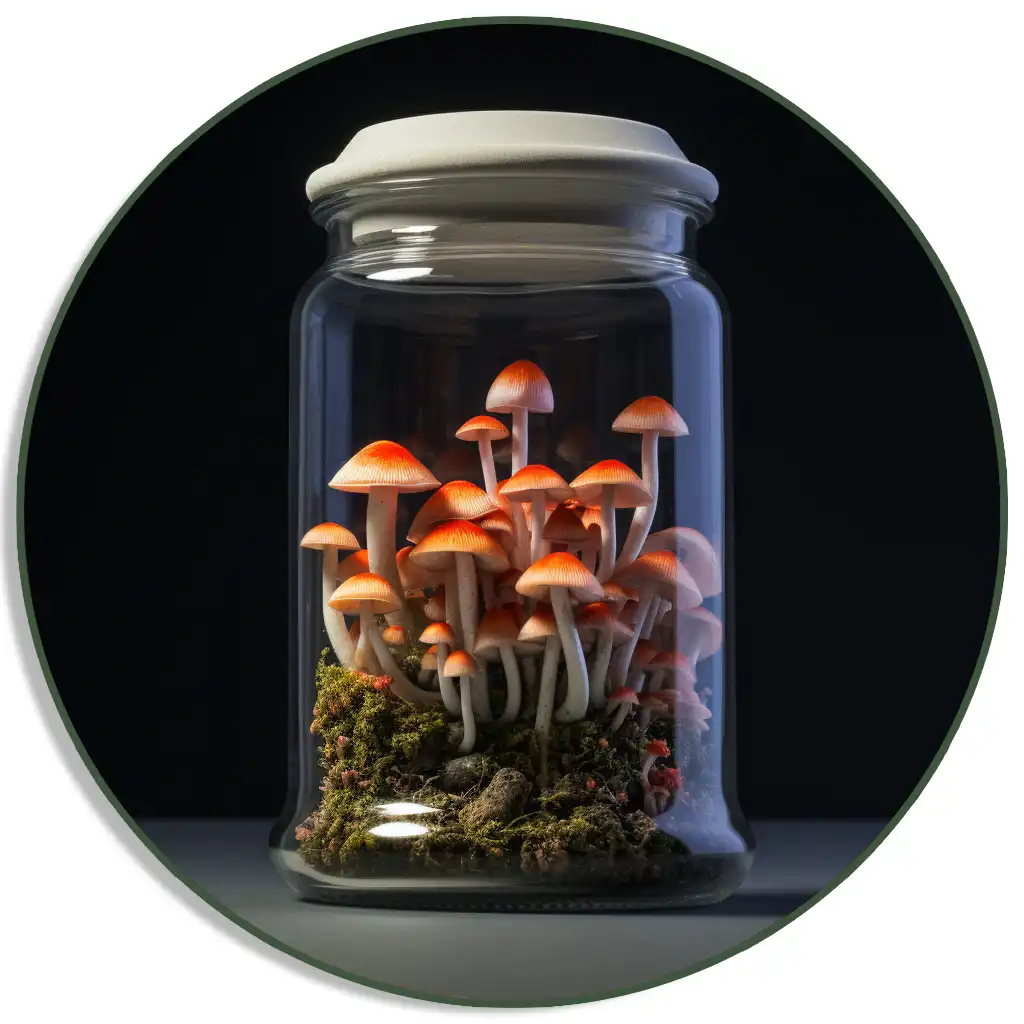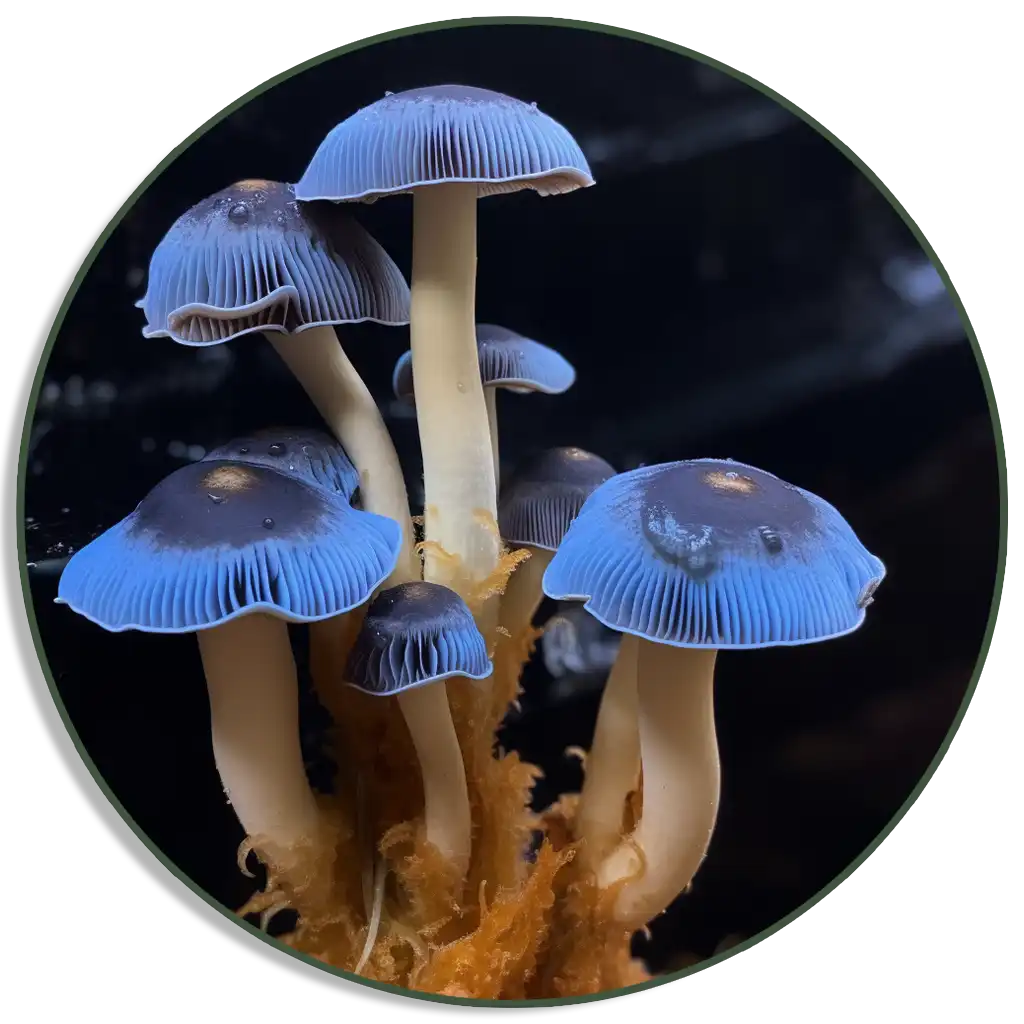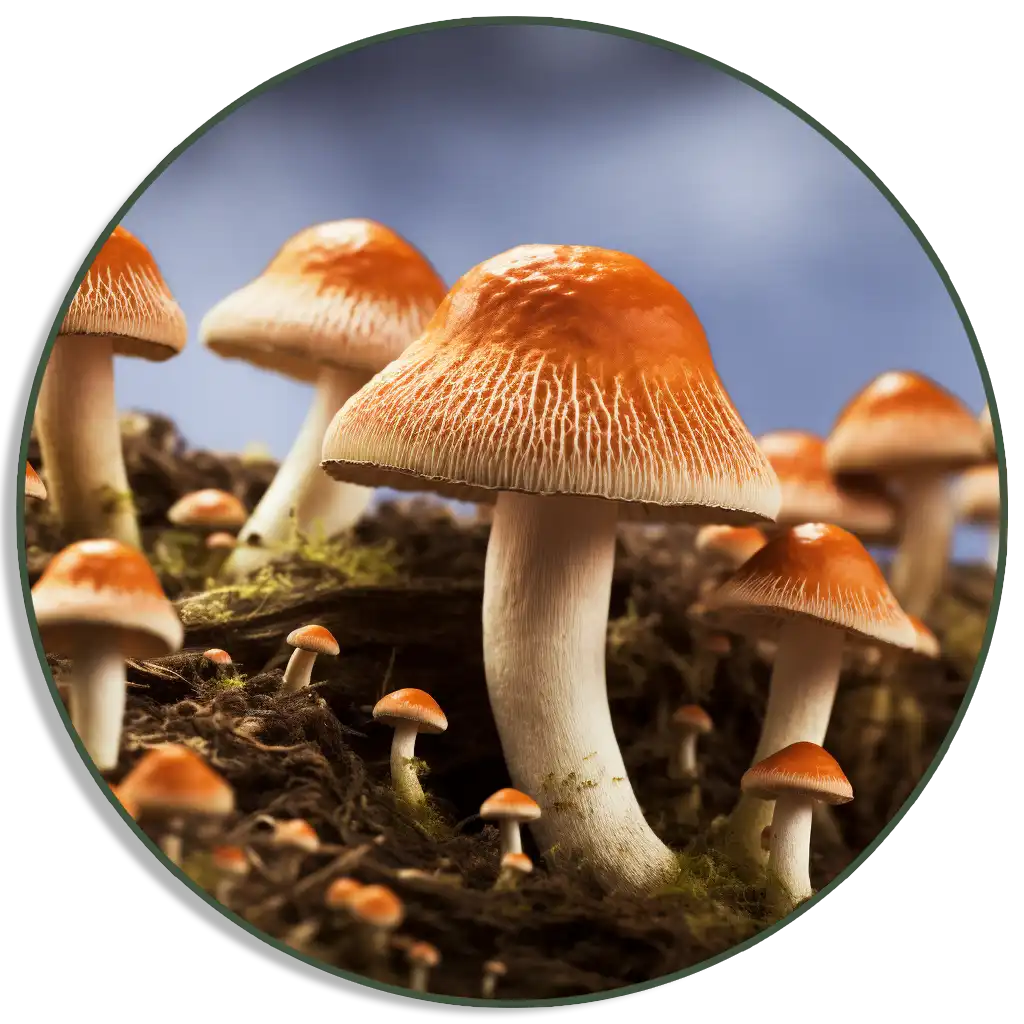The World of Magic Mushrooms
Step back in time and discover the rich tapestry of history woven by magic mushrooms. These mystical fungi, revered and utilized for millennia, have played a multifaceted role in human civilization. From the spiritual ceremonies of ancient shamans, who sought communion with the divine and insights into the unseen realms, to the curious explorations of contemporary enthusiasts in search of mind-expanding experiences, magic mushrooms have journeyed alongside humanity, evoking awe, reverence, and contemplation.
Their presence has been felt in art, culture, medicine, and ritual, etching an indelible mark on societies across continents and epochs. This story is not just about a simple fungus; it's about humanity's perpetual quest for understanding, transcendence, and connection to the vast cosmos.

The Chemistry Behind the Magic
Magic mushrooms, often referred to as nature's own psychedelic gift, have intrigued and inspired for generations. But what makes them produce the transcendental experiences so many speak of? It all boils down to their unique chemical composition.
At the center of this psychedelic experience are two primary compounds: Psilocybin and Psilocin. Both are tryptamines, a class of compounds that are structurally similar to the neurotransmitter serotonin, which plays a pivotal role in mood, appetite, sleep, and cognition in the human brain.
The science behind these compounds becomes even more riveting when we delve into brain imaging studies. These studies show that, under the influence of psilocybin, the brain enters a pattern of connectivity reminiscent of dream sleep. Different brain regions, which typically don't communicate, begin to synchronize, leading to heightened imagination, altered perception of time, and the feeling of interconnectedness.
Moreover, this chemical interplay often results in what many describe as profound spiritual or mystical experiences. Moments of ego dissolution, a feeling of oneness with the universe, and revisiting past memories are commonly reported. For many, these experiences lead to long-lasting positive changes in life perspective, personal values, and behavior, truly blurring the boundaries between the realms of science and spirituality.
Safety and Dosage: Tripping with Caution
Navigating the psychedelic realm, especially with substances as potent as magic mushrooms, requires a careful balance of curiosity and caution. It's not just about seeking profound experiences but ensuring that the journey is undertaken safely and responsibly.

Setting and Mindset
Beyond dosage, the environment and one's mental state play pivotal roles in determining the nature of the psychedelic experience. Choosing a safe, comfortable setting, and ensuring a positive frame of mind can significantly influence the journey. Being with trusted friends or having a sober "sitter" can also be beneficial, offering guidance and assurance should the need arise.
Historical Context
In many countries, possession, sale, or cultivation of magic mushrooms can lead to significant penalties. This includes places where other substances might be more leniently treated.
Strict Prohibition
It's essential to understand that the criminalization of psychedelic substances, including magic mushrooms, largely stemmed from the cultural and political upheavals of the 1960s and 1970s. Concerns about the counterculture movement, combined with a lack of comprehensive research, led many countries to place stringent controls on these substances.

The Washington DC Scenario
The nation's capital offers a fascinating case study. In recent years, Washington DC has been at the forefront of drug policy reform. While magic mushrooms are not entirely legal, local activists have successfully pushed for their decriminalization.
The Future of Legalization
With growing research supporting the therapeutic benefits of magic mushrooms, the push for their medical and even recreational legalization is gaining momentum. Grassroots movements, advocacy groups, and an evolving public perception are challenging the existing norms and pushing for a more science-based, harm-reduction approach to psychedelics.






